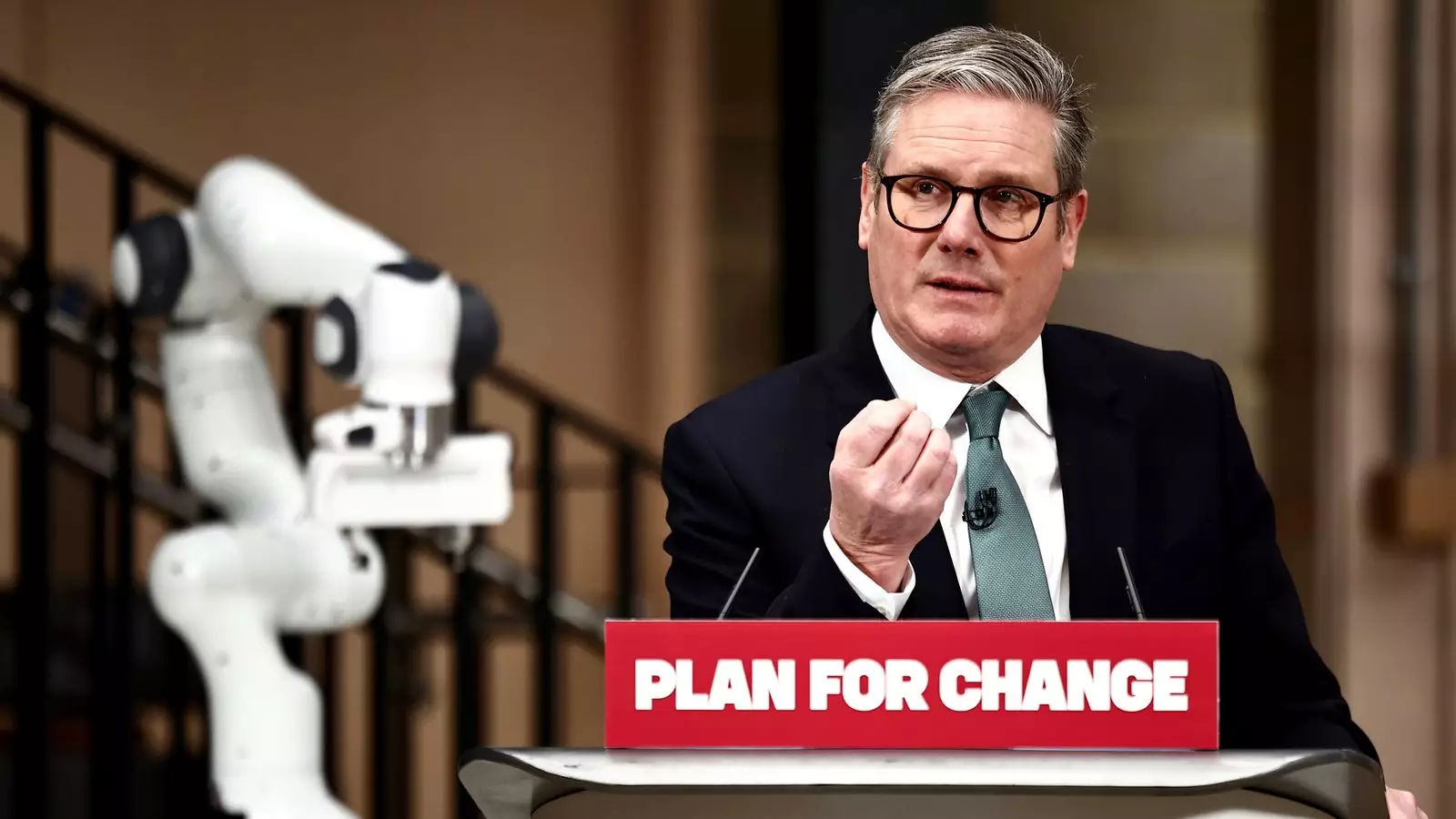In a climate of heightened financial uncertainty, Sir Keir Starmer has articulated a stern approach to managing government finances, emphasizing the Treasury’s readiness to adopt “ruthless” measures in its spending strategy. His comments come at a time when the UK economy is grappling with escalating borrowing costs and a depreciating pound, which are symptomatic of broader market turbulence. This stance reflects a growing urgency within the government to prioritize economic growth and reassess fiscal discipline amidst rising challenges.
The rising cost of government borrowing, highlighted by a 30-year gilt yield reaching 5.47%—the highest since mid-1998—indicates the mounting pressure on public finances. The benchmark 10-year borrowing cost, while slightly lower at 4.86%, also mirrors conditions reminiscent of the 2008 financial crisis. Such metrics reinforce the critical need for immediate action as both the Treasury and the Chancellor must navigate the impending need to either adhere to or amend existing fiscal rules. The implications of these rising costs on future government initiatives and spending reviews cannot be overstated, as they may reshape the priorities of public expenditure.
Recent developments have led to warnings that mortgage rates are likely to increase, further burdening the average household. As market confidence falters, the implications for the everyday citizen become starkly apparent. Sterling’s depreciation to lows not seen since October 2023 only adds to the growing list of concerns. A weak currency affects not just import costs but can discourage foreign investment, ultimately stalling growth where it is most needed.
In this charged environment, Starmer’s assertion that the government’s “number one mission” is to foster economic growth seems more crucial than ever. However, the challenge lies in how to stimulate growth without exacerbating the current fiscal crisis. The proposed spending review anticipates a 5% efficiency saving from government departments, underscoring the tension between necessary expenditure and stringent budgetary discipline. The Prime Minister’s reluctance to categorically rule out spending cuts only adds to the uncertainty surrounding fiscal health.
Against this backdrop, political dynamics are shifting with growing scrutiny on both the Labour leadership and the Chancellor, Rachel Reeves. Although Starmer has expressed confidence in Reeves’ capabilities, his evasiveness regarding her future role—the potential for her departure by the next election—suggests underlying tensions and unease within the party. In political circles, the perception that a leader cannot unequivocally endorse their Chancellor could undermine confidence, both publicly and within party ranks.
Conservative criticisms of Labour’s management of the economy have intensified, accusing the current leadership of steering the country towards financial chaos. With public discontent brewing over rising costs and declining confidence, the Labour party must navigate a treacherous political landscape. The emerging narrative frames the party as grappling with economic incompetency, further complicating its ability to maintain authority in governance.
As the UK navigates these stormy economic waters, the question remains: Can the government balance the need for rigorous spending discipline with fostering an environment conducive to growth? The current economic outlook demands more than just austerity measures; it calls for strategic investments and innovative policies that can stimulate the economy without inflating debt levels.
Keir Starmer’s claims of a relentless push for fiscal responsibility must translate into actionable policies that address both immediate financial pressures and long-term economic stability. The intertwining of economic challenges and political accountability will define the course of the Labour government as they face mounting scrutiny from both opposition and public sentiment. As the nation braces for continued volatility, the crux of the issue lies in effectively managing expectations while enacting pragmatic solutions that pave the way for a more resilient economic future.

